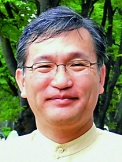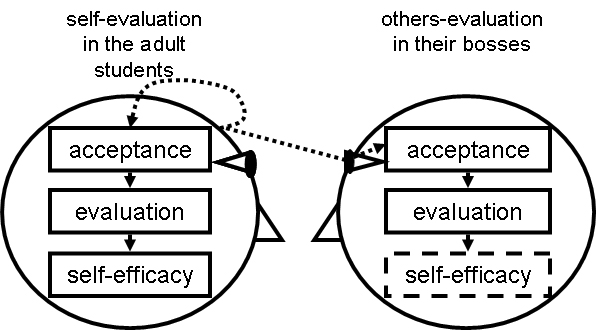Comprehensive List of Researchers "Information Knowledge"
Center for Embedded Computing Systems
- Name
- YAMAMOTO, Masaki
- Group
- Title
- Designated Professor / Director
- Degree
- Dr. of Information Science
- Research Field
- Embedded software / Educational evaluation

Current Research
Education method for embedded software engineers
OUTLINEWhat education should corporate engineers receive? How should education effect be measured? To answer these questions, I advance my own research from a multilateral standpoint focusing on embedded software education. As an outcome of this research, a specific education curriculum and an evaluation method are established.
In this research, a specific education curriculum is developed. Additionally, lectures are given to working engineers and the effectiveness of the education is measured. In recent years, I have been interested in the self-evaluation of adult students taking the courses and the others-evaluation by their bosses, and whether the evaluations from the two sides correspond with each other or not. In the case where there are any gaps between them, the tendencies within the differences are identified and the underlying mechanism is clarified.
TOPICS
- Education Curriculum
Those who take part in the education program are divided into four classes based on the two criteria: technical ability and management capability. Furthermore, each class has specific training skills. The training skills are controlled according to the Embedded Technology Skill Standards (ETSS). Multiple educational courses are organized for each class to allow students to master more than one training skills. Working people have a limited time to study. Therefore, the method of curriculum design needs to be structured in the way that produces the educational effects in short term.
- Educational Courses
Educational courses consist of lectures and a lot of practices. Merely imputing knowledge is not sufficient for corporate engineers; they need to acquire the skill to engage in technological developments at their work places.
In order to accelerate the development of human resources at each company, an educational course for instructors is also developed. Those who take this course are expected to acquire thorough and broad understanding of the technical fields covered in class. Furthermore, this course aims to systematize the structure of curriculum development.
In order to accelerate the development of human resources at each company, an educational course for instructors is also developed. Those who take this course are expected to acquire thorough and broad understanding of the technical fields covered in class. Furthermore, this course aims to systematize the structure of curriculum development.
- Educational Evaluation
The effectiveness of education for working people should not be measured solely by exam scores; education should also be assessed qualitatively by observing the day-to-day job performance of working people. I am interested in finding out whether the results of the qualitative assessments made by self-evaluation and others-evaluation are similar to each other. Therefore, educational effects are measured by gathering evaluations from the adult students and their bosses several times before and after the courses. It has been confirmed so far that there is a certain time lag between their evaluations. The evaluation based on the adult students' job performance revealed differences between the adult students and their bosses.
FUTURE WORK

Figure : Self-evalution and Others-evalution
Career
- Masaki Yamamoto received the Dr. of Information science degree in information Engineering from Nagoya University in 2009.
- He joined Denso corporation in 1981.
- Since 2009 his position at Nagoya Univ. has been as the Director of the Center for Embedded Computing Systems.
Academic Societies
- IPSJ
- JCSS
- JSEE
Publications
- Educational Measures to Promote the Level of Human Resource Development Skill for Manager Class Embedded Software Development Engineers, Journal of JSEE, 60-3, 56-59 (2012) (in Japanese).
- The Evaluation of Adult Student's Job Performance by Oneself and One's Boss : The Measurement Method of Educational Effect Focused on the Evaluation Gap, Cognitive Studies, 17(2), 257-269(2010).
- Practice and Analysis of an Extension Course for Training Trainers of Embedded Software. ACM SIGBED Review, 4, 73-81 (2007).
- Measuring of the educational effect after attendance by the students and their bosses of embedded software education, Journal of JSEE, 55, 81-85 (2007) (in Japanese).








